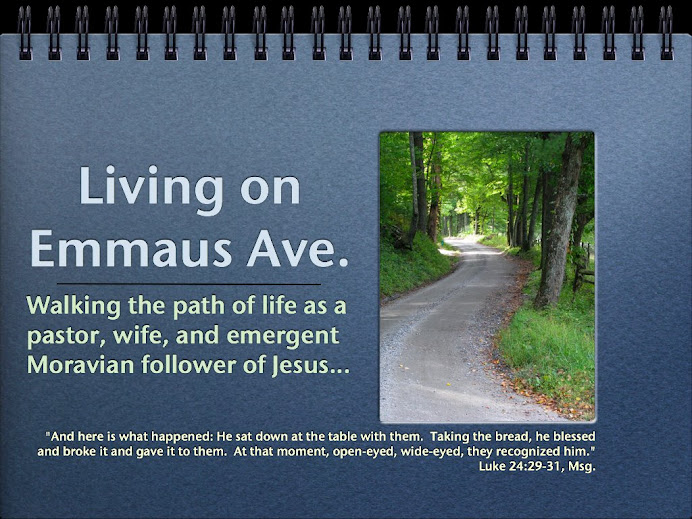Festival of Homiletics, Nashville, TN
Notes from Monday evening's worship gathering
5/17/10
[NOTE: These are my notes from the Monday evening sermon by Bishop McKenzie. They are incomplete, not transcribed exactly except where I have attempted to quote her direct phrases as indicated by quote marks, and are things that jumped out at me. I don't pretend that these will make complete sense out of context, but I wanted to capture them for me and share them with you. Grammar, syntax, flow, connecting transitions--Trying to convert them back into written form is difficult at best. My best advice is to take any opportunity you might possibly have to hear Bishop McKenzie preach!]
Bishop McKenzie's Sermon - "Speaking Truth to Power" (
Exodus 4:10-17, specifically verse 12)
(Photo Slide on the Wall--"Speak the truth, even if your voice shakes." written in spray paint on the side of the wall of a house.)
Scripture from Exodus 4:
10But Moses said to the Lord, “O my Lord, I have never been eloquent, neither in the past nor even now that you have spoken to your servant; but I am slow of speech and slow of tongue.” 11Then the Lord said to him, “Who gives speech to mortals? Who makes them mute or deaf, seeing or blind? Is it not I, the Lord? 12Now go, and I will be with your mouth and teach you what you are to speak.” 13But he said, “O my Lord, please send someone else.” 14Then the anger of the Lord was kindled against Moses and he said, “What of your brother Aaron, the Levite? I know that he can speak fluently; even now he is coming out to meet you, and when he sees you his heart will be glad. 15You shall speak to him and put the words in his mouth; and I will be with your mouth and with his mouth, and will teach you what you shall do. 16He indeed shall speak for you to the people; he shall serve as a mouth for you, and you shall serve as God for him. 17Take in your hand this staff, with which you shall perform the signs.”(Exodus 4:10-17, NRSV)
Exodus teaches over and over that God hears and responds. The pattern runs throughout the book again and again. But it just might not be in the ways we want or expect.
We are living in an "and" world. A world of extremes that are held together by "and". Poverty and excess. Hunger and obesity. Republican and Democrat. The New York Times and Fox News. Our times are difficult ones. Times that leave us with the need to hear a good word from the Lord. And the need to share truth--God's Truth-- with the powers that be.
Moses was unsure of himself and he felt ill-equipped for what God was calling him to do through the burning bush. He tries to discuss this with God, and God/ I am Who I Am/ I will be who I will be/ I have been who I have been. But that doesn't get him off the hook. God sends him on his way and "all he got was Aaron and a stick." And he was supposed to speak to Pharaoh... and God even told him that Pharaoh wouldn't even listen. What an assignment!
When are you called to speak truth to power? When you are, you do not have the words... "These are God's words and God shapes our preaching agenda. " Society's status quo message equals comfort, where as the Truth that God calls us to speak is not the status quo and is not comfort for our society and culture.
Therefore, "Maybe we ought to preach revolutionary sermons.... If you preach Jesus-kind of sermons, The New York Times is going to write editorials about you, the Washington Post will put you on the cover, and Fox News will cover you for a whole month."
Speaking truth to power means God will take you where you need to go, not where you want to Go! It means we will need to face our fears of success or failure, because it is not about you; it's about God. It means we will not be blessed (with creature comforts, nice cars, well-to-do homes, etc) but will be a blessing to all. Being a blessing to others means demonstrating the love of God in the unloving places in our world.
Truth in power preaching means holy ground/take off your shoes preaching. When we are asked, "Is there a word from the Lord? We should come running--Yes! There is!






